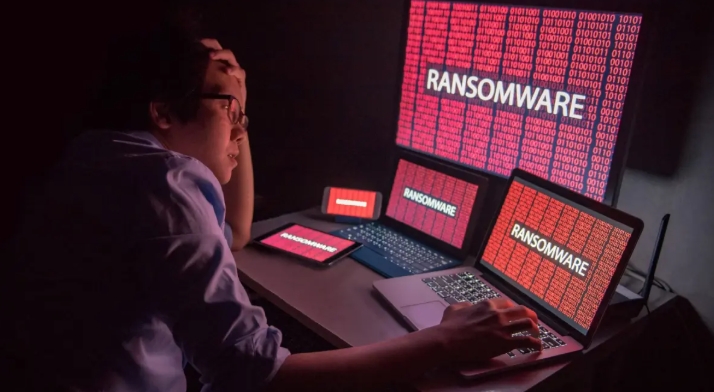Cyber threats have become the invisible enemy of modern organizations. In Thailand, hospitals are now facing a critical situation: patient data, highly valuable on the dark web, has become a prime target for global hackers. As a result, Thailand now ranks among the top five most-cyberattacked countries in the world.

Bumrungrad Hospital: Facing 27,000 Cyberattacks Monthly
Bumrungrad International Hospital, one of Thailand’s most advanced healthcare providers and a Cloudflare client, reported a shocking average of 27,000 attempted cyberattacks per month — all of which have been successfully thwarted by AI-powered defense systems.
In an exclusive interview with Krungthep Turakij, Kenneth Lai, Vice President for ASEAN at Cloudflare, emphasized that the company is not just a firewall or DNS/load balancer provider, but a platform that integrates AI, analytics, performance optimization, and security to help businesses innovate securely.
Currently, Cloudflare serves over 250,000 paying customers and more than 6 million free users worldwide, from small startups to global enterprises — collectively accounting for 20% of the world’s internet traffic.
AI Against Cyber Warfare
What sets Cloudflare apart is its strategic use of artificial intelligence — not only to detect threats but to enable real-time business intelligence that supports faster, smarter decision-making.
“Hackers are already using AI as a weapon,” Kenneth explained.
Cloudflare has encountered intelligent bots capable of cracking thousands of passwords per second, deepfake-generated voices/images of executives for financial fraud, and AI-coordinated DDoS attacks that are more accurate and destructive than ever.
To counter this, Cloudflare also uses AI to learn user behavior, detect anomalies, and auto-optimize service to ensure seamless and secure user experiences.
According to the Cloudflare Signals Report, the company mitigated 20.9 million DDoS attacks in the past year, a 50% increase from the year before. More importantly, this threat data is used to map global attack patterns in real time, helping organizations adapt their business strategies on the fly.
Thailand’s Cyber Landscape: Healthcare Under Siege
In Thailand:
-
63% of organizations have been victims of cyberattacks
-
52% admitted to paying ransom following ransomware incidents
Yet organizations that adopt integrated cybersecurity platforms have seen:
-
90%+ reduction in risk
-
40% increase in operational efficiency
This is because they no longer waste resources juggling multiple disconnected security systems.
Healthcare is especially vulnerable. According to Cloudflare, the Thai healthcare, finance, telecom, and government sectors are among the most targeted. Bumrungrad Hospital, in particular, has embraced Cloudflare not just to block attacks, but to create a safe, seamless, and transparent digital experience that protects patient trust.
Real-Time Cyber Resilience for Hospitals
Cloudflare’s systems work across multiple layers — blocking DDoS attacks, brute-force login attempts, malware injection, and data theft — while also managing virtual queues during peak usage, such as medical appointment bookings, ensuring emergency cases receive priority and no system downtime occurs.
Security protocols ensure strict access controls:
-
Doctors access only their patients' records
-
Nurses see department-specific data
-
Finance teams view billing information only
This level of access governance reflects not just technology, but the core trust between patients and providers.
Cloudflare’s Content Delivery Network (CDN) further enhances patient care by accelerating large image transfers, like X-rays and diagnostics, even under low-bandwidth conditions.
As Kenneth describes it, Bumrungrad is evolving into a “cyber nervous system health platform” — one that scales with demand, responds to real-time needs, and is always ready for the next threat.
Cybersecurity Is No Longer “Back Office Work”
In the past, cybersecurity was seen as the job of IT teams in the background — updating software, resetting passwords, or blocking strange bots. But today, cybersecurity has moved into the boardroom.
It now influences:
-
Financial planning
-
Product design
-
Risk management
-
Corporate communication strategy
-
When a breach occurs, the impact is more than a downed website:
-
A patient’s critical scan is delayed
-
A credit card is stolen
-
A deepfake scam convinces parents to send money


